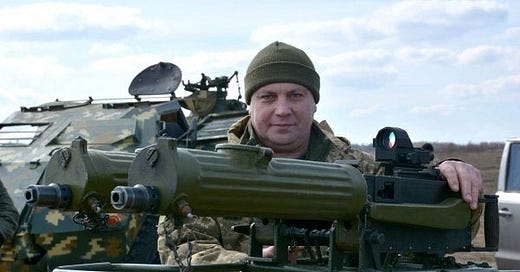A war like no other
Military plans are relationships of things that do not necessarily happen or that occur in a different way than was planned. No war is similar to the one that preceded it. The technological evolution of the means of destruction is a natural consequence of hostilities. These are just three of the common places you can find in any military history book.
The military history of Ukraine's war proves the first two statements above. But it has been an eloquent denial of the latter.
When it started, the conflict was seen as a show of effectiveness of the most modern equipment available to the Russian Armed Forces. But as the Ukrainian resistance began to be supported by European countries, something strange happened.
As opposed to defending itself only with modern equipment (such as the Javelin missiles provided by the US), Ukraine also defends itself and counterattacks with obsolete weapons that are being donated by Germany, Portugal, Poland. No matter how much weaponry the Russians are able to destroy and capture, the fact is that the war will continue to roar and damage the most modern military units in the Kremlin.
This perhaps explains the fact that Russia itself has begun to recycle obsolete military equipment to put it on the battlefield. However, the theater of operations remains dominated by Russian air superiority and medium-range missiles. Intelligence collection is done using extremely sophisticated satellites and radar systems, but their mission is to ensure the success or destruction of weapons that may be considered obsolete.
Technological evolution at the service of military units that employ outdated weapons, but whose destructive power cannot be underestimated. Whoever has the best means of destruction does not necessarily win a war. The US defeat in Vietnam is eloquent proof that it is possible to kill, maim and demoralize a technologically superior enemy using older and even improvised weaponry.
There is, however, a difference between the Vietnam War and the Ukrainian War. The Vietnamese had inferior technological conditions to those of the American invaders and were able to impose themselves by virtue of their numerical superiority and the use of strategies adapted to their material, technological and economic limitations. Generally speaking, we can say that Russia is technologically superior to Ukraine. Even so, the Kremlin is being forced to adapt to a war of attrition whose most striking feature is the use of military equipment considered obsolete a few months ago.
Russia cannot give up without a diplomatic agreement that guarantees the political independence of the regions it controls militarily with the support of the local population. Ukraine does not want to be defeated and insists on perpetuating the conflict with the help of the Europeans and the US. The new logic of conflict (the use of obsolete military equipment in a technologically sophisticated theater of operations) is cruel, as tens of thousands or hundreds of thousands of Ukrainians and Russians can be crushed in the gears of this war without either side gaining any decisive advantage that puts an end to the conflict.
During World War II, the Germans began to surrender when they were exhausted. The exhaustion of Japanese troops, however, was not enough to abbreviate that conflict in Asia. When the guns finally fell silent in 1945, the defeated began to be rebuilt with the help of the victors. Devastated by World War II, Ukraine was not rebuilt with US help but with USSR resources. No one knows exactly when the Ukrainian civil war will end – if the conflict does not spread to other countries in the region – who will rebuild the territories devastated by Ukrainians and Russians and with what money?
By starting to recycle scrap metal to put on the battlefield, Russia seems to predict that the conflict could still expand. Kremlin strategists don't want to commit all their sophisticated military units in Ukraine because they imagine they might be forced to face NATO and even US troops? That's the real question to ask right now.



